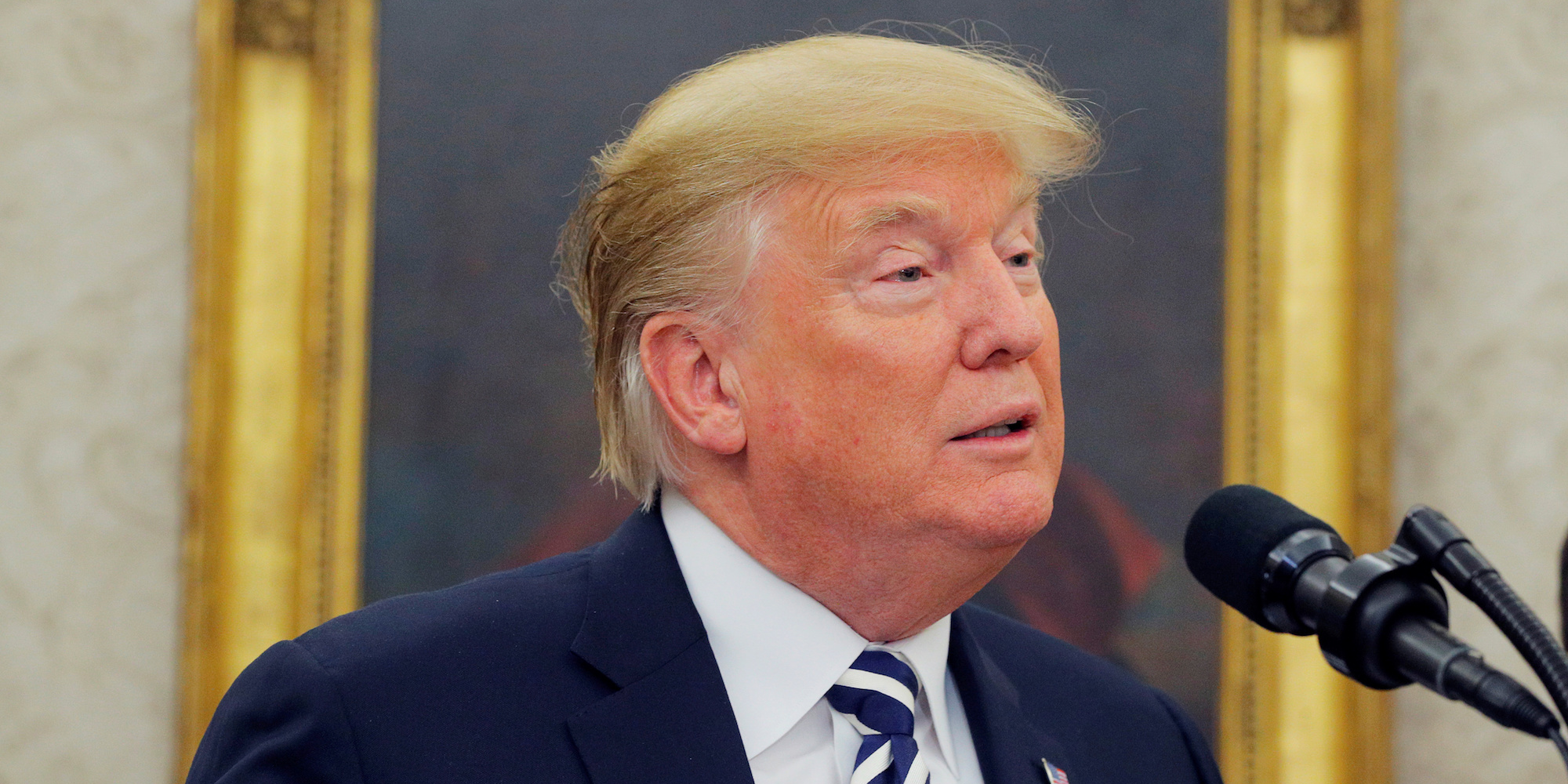- President Donald Trump on Tuesday said a government shutdown would be a “small price to pay” to secure funding for the wall he wants to build along the US-Mexico border.
- Economists say a shutdown could cause the economy to lose up to $2 billion per week.
- Government shutdowns have far-reaching consequences that affect many aspects of the federal government and economy.
- It’s estimated that the 2013 government shutdown, which lasted 16 days, cost the economy somewhere between $2 and $6 billion.
President Donald Trump on Tuesday said a government shutdown would be a “small price to pay” to secure funding for the wall he wants to build along the US-Mexico border, but analysis from economists shows it could cost the US economy billions of dollars in a matter of days.
Trump tweeted that he didn’t care about the “political ramifications” of a shutdown, stating, “our immigration laws and border security have been a complete and total disaster for decades, and there is no way that the Democrats will allow it to be fixed without a Government Shutdown.”
The president added, “Border Security is National Security, and National Security is the long-term viability of our Country. A Government Shutdown is a very small price to pay for a safe and Prosperous America!”
Though Trump says a government shutdown would be a “small price” to pay for a border wall, economists say it could cause the economy to lose up to $2 billion per week.
Amid January's three-day government shutdown, Brookings Institution senior fellow David Wessel told NPR, "There are all sorts of services that people can't get [during a shutdown]. The economists who add this up say it works out to about $2 billion a week in lost output to the economy every day the shutdown persists."
A separate analysis from S&P Global, released in December 2017, said a shutdown could cost the economy up to $6.5 billion per week.
Government shutdowns have far-reaching consequences that impact many aspects of the federal government and economy.
It's estimated that the 2013 government shutdown, which lasted 16 days, resulted in $24 billion in lost economic output.
The shutdown also cost taxpayers roughly $2 billion in lost productivity after the government retroactively paid furloughed workers, according to a report from the Office of Management and Budget.
The National Park Service estimated that the 2013 shutdown resulted in more than $500 million in lost visitor spending nationwide as national parks were forced to close during the 16-day period.
The 2013 shutdown also disrupted private-sector lending to individuals and small businesses, while causing small business contracts with the Department of Defense to drop by roughly one-third compared to the same period in the year prior.
To put all of this into perspective, it's estimated that the wall Trump wants to build along the US-Mexico border could cost between $21 billion to $70 billion.
If there's a government shutdown over the wall and Trump secures funding, it would likely mean a hit to the economy while also leading taxpayers to cover the cost of lost productivity on top of the wall.

